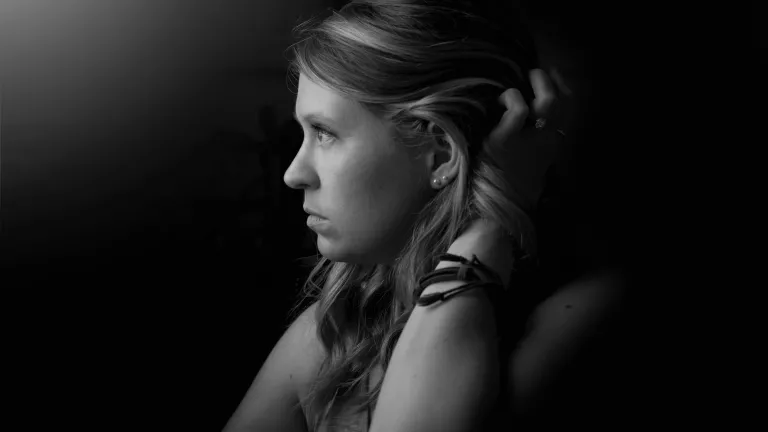Healing Broken Trust in Marriage, Part 2: The Nature of the Addiction

How my husband's addiction ripped our marriage apart, and the miraculous changes God began to effect in both my husband and me that put us on the path to reconciliation.
The roots of my husband’s sexual addiction began long before he met me. In fact, they started in his childhood. His sexual addiction began in a cycle of self-medicating family pain over several years. However, buried feelings come back up to the surface until they are actually worked through to healing. My husband carried wounds from childhood—wounds of family dysfunction and personal trauma that directly related to his value as a person. His father chose alcohol over him. Violence in the home resulted in a divorce when my husband was only six years old. My husband did not bond with his father as a result, and on top of that, carried some guilt that he must have been partly responsible for his dad leaving him. This began to set the foundation for the addictive mindset.
Patrick Carnes’ research in his book “Don’t Call It Love” showed that 97 percent of sex addicts experienced emotional childhood trauma, 81 percent experienced sexual trauma, and 72 percent experienced physical trauma. My husband suffered much emotional trauma, which included witnessing his mother and sibling being physically abused. My husband was introduced to pornography as a child and began masturbation as a form of self-soothing, which of course reinforced the addiction to porn. His core concepts were being destroyed as he increasingly felt ashamed, worthless, unlovable and alone. The seeds of addiction had been sown.
Later, in the army, he re-engaged with pornography and self-soothing. When he met me, my husband was not engaged in these behaviors and it remained that way until a period of high stress hit our family. My husband had lost his job and was unable to find a job for a year. He was most vulnerable during times of high stress, loss and conflict. All this triggered anger, resentment, fear, guilt, shame and entitlement. My husband did not know how to deal with uncomfortable feelings. He would not truly connect with me because he was too ashamed to be vulnerable and transparent, fearing he would be rejected and abandoned. He isolated himself into false intimacy with porn, cyber-sex, and emotional fantasy with other women in his life. At times, he sought to be physically intimate with a woman, but thankfully, no woman was willing to go that far with him. He of course was avoiding facing up to the seriousness and sinfulness of his thoughts and actions (Matthew 5:28-30; 1 Corinthians 6:18-20).
Brene Brown, a researcher of intimacy, vulnerability and shame found that sex addiction is an intimacy disorder. A core belief of an addict is, “If people knew the real me, they would reject me.” I felt my husband pulling away from my love and support as he disengaged in our marriage and with me. He would stay up into the early morning fantasizing and going through a ritualistic hunt for erotic images and cyber-sex that would bring him a sense of relief. Afterward, this brought him more shame and guilt and he would purge himself from the addiction for a while. Living in secrecy was painful. He hid behind denial, delusion and blame as a type of addictive cloak. Alcohol lowered his inhibition, impaired his judgment and medicated the shame after acting out. He never got drunk, but he consistently drank a few beers every night. His lies and manipulative behavior blinded him to reality. His justification was a coping strategy and he eventually began to believe his own lies that he was not hurting anyone, not even himself.
I did not yet understand that the nature of sexual addiction was one of binge and purge. The purge cycle would last until the next stressful event came along. He would be emotionally absent, angry and defiant when he binged. Then he would be depressed and isolated when he purged as a result of shame. I would uncover his stash of porn or find names he was connecting with and confront him. He would deny the facts, then later say he was sorry. I tended to believe him and all seemed well for a while and then the cycle kept repeating, growing steadily more violent and degrading.
As a wife, I felt confused as he pushed my encouragement and any support aside. I needed to set clear boundaries with consequences that respected his freedom to choose. I did not understand this at that time. I kept enabling him to continue his addiction in our marriage by not setting boundaries and healthy consequences. I needed to learn how to believe his actions instead of just his words. I thought I could fix him with my advice and suggestions. I was in denial and trying to control what was not mine to control; I was in God’s way, and I had a lot to learn myself.
My husband lost sight of God and His values. He reconnected with a high school girlfriend and tried to rekindle a romance with her, spending hours on the phone with her. After I discovered the evidence of that, I confronted my husband but he refused to cut off the relationship. Then I sought the help of two of his good friends from our congregation. They confronted my husband and gave him the choice between his reconnection with his high school girlfriend and his addiction or me. After that conversation, they told him he should pack up and move out.
When I saw his heart towards me and our marriage, I served him divorce papers. He preferred to move on, blaming me for the consequences of his life. I was like a mirror reflecting back reality and my husband was choosing denial. Then I asked another mutual friend to talk with my husband and after that, the friend let me know that my husband was moving on and our marriage was over. What followed was God’s miraculous work over that summer. I learned to let God be my anchor instead of my husband. God showed me that I had been in denial myself for years. I had completely focused on my husband for my self-worth instead of God and my relationship with God. I fasted and prayed for my husband, our kids and myself. I began to realize that the addiction was never about me and that it was not my fault.
Over that summer, I learned that the brain’s frontal lobe, and especially the prefrontal cortex, is where our brain’s working memory and concentration occur. Executive planning, social awareness and impulse control also happen here; however, this area of the brain shuts down during active sexual addiction. Neurons that fire together actually wire together. These neurotransmitters create dopamine that gives the brain a powerful high. Sexual addiction is a process addiction. The high is created through the action, while the brain creates the dopamine. Dopamine produces a protein that collects in the neurons and results in stronger cravings. Tolerance develops leading to increased sexual acting out to get the same pleasure as before, while fulfillment decreases. This is a cruel cycle.
Increasingly, I realized this was largely a spiritual battle. I focused more and more on scriptures like 2 Corinthians 10:3-5, which says: “For though we walk in the flesh, we do not war after the flesh. For the weapons of our warfare are not carnal, but mighty through God to the pulling down of strongholds. Casting down imaginations, and every high thought to the obedience of Christ.” Pulling down mental strongholds and taking our thoughts captive for the glory of God are essential in the battle of sexual addiction.
Two months later, my husband had hit bottom. He called an elder in our congregation and said he wanted to get back together with me. I wrestled greatly with God over this! But God provided what we needed through heart changes and outside support. When my husband joined a support group where he could share his story, work through shame, feel accepted, and know he was not alone, he worked on healing with God and began to change his actions. I have watched my husband work through the process of facing his addiction. He had to let go of control, and commit to hard work and honesty.
In Ephesians 6:17, Paul wrote: “And take the helmet of salvation, and the sword of the Spirit, which is the word of God.” My husband had to pick up his spiritual sword and dive into the truth of scripture so he could replace the false beliefs in his head. He had to go all the way back to the origin of his childhood trauma and work through the painful causes that brought him to where he ended up. He went through three years of counseling because this was a slow, deep process for him. He went through individual counseling on his childhood and addiction first, and then we completed marriage counseling for healing and learning to reconnect.
I have seen him become a brave soldier in Christ. I have seen him grow in honesty. I have seen God change his heart. My husband has been given the freedom of choice, which means I do not have control over him or his choices. In letting go and letting God have His rightful place in each of our lives, I have found peace, even after I was sure our marriage was over. God also began life-changing work in me. I will begin to share this part of my journey in my next article, “Commitment to Personal Healing.”






